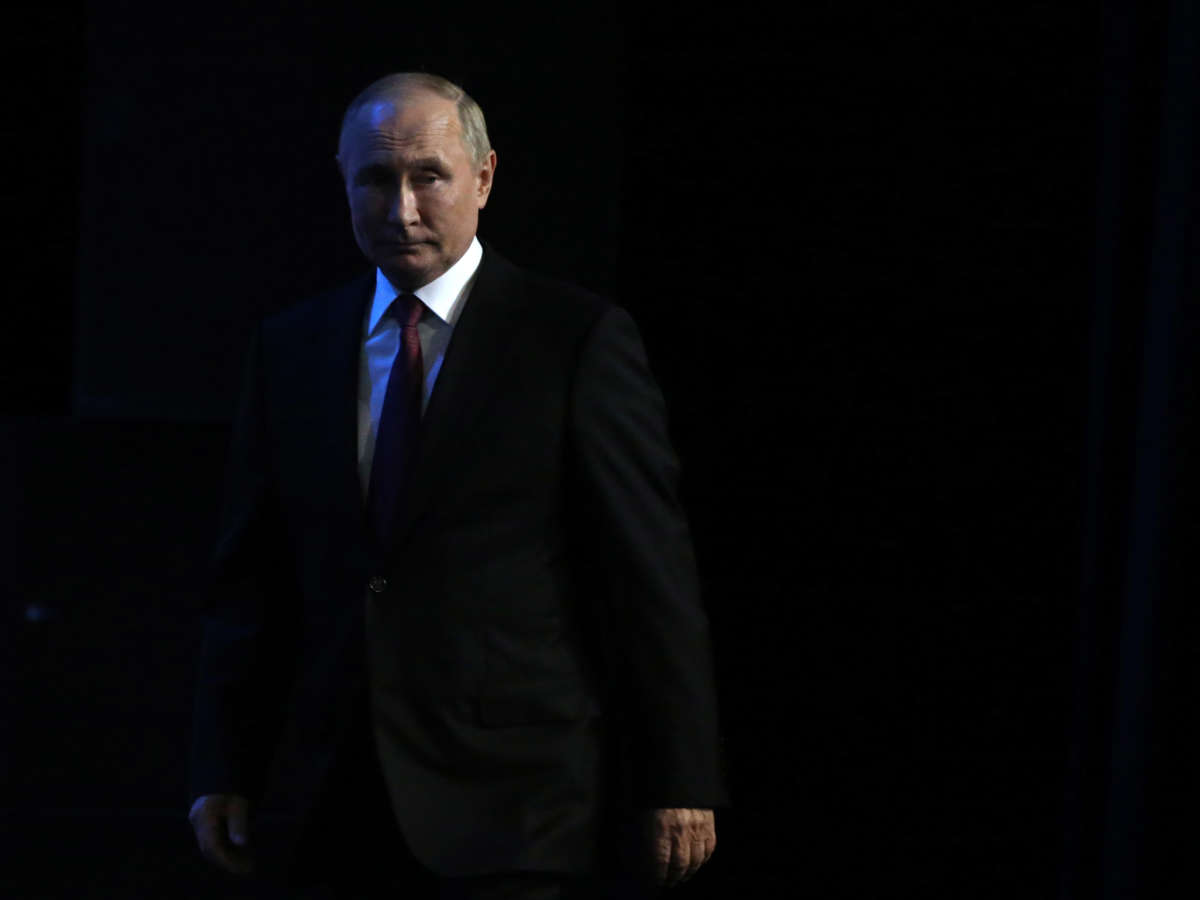U.S. President Joe Biden said Thursday that nuclear threats from Russia’s leadership have raised the risk of “Armageddon” to its highest level since the Cuban Missile Crisis, prompting urgent calls for the White House to help bring the world back from the brink by actively pursuing a diplomatic end to the war in Ukraine.
During a speech at a fundraiser for the Democratic Senatorial Campaign Committee, Biden said that Russian President Vladimir Putin is “not joking when he talks about the use of tactical nuclear weapons or biological or chemical weapons.”
“I don’t think there is any such a thing as the ability to easily use a tactical nuclear weapon and not end up with Armageddon,” Biden continued, echoing the assessment of nuclear experts and nonproliferation campaigners.
The U.S. president’s stark warning came weeks after Putin said in a televised address that it is “not a bluff” when he vows to “use all the means at our disposal to protect Russia.”
Noting the nuclear capabilities of Western powers, Putin declared that Russia “also has various means of destruction, and for some components more modern than those of the NATO countries.”
The U.S. responded with a warning of “catastrophic consequences” for Russia if it uses nuclear weapons in Ukraine, though the White House said earlier this week that it has not yet seen any “indication that Russia is preparing to imminently use nuclear weapons.”
Putin’s remarks were viewed by anti-nuclear campaigners as his most aggressive to date as Russia’s assault on Ukraine drags on and continues to face major setbacks, heightening fears of a sharp escalation in military tactics.
Peace campaigners have warned since the start of Russia’s invasion that the longer the war persists, the greater the chance of nuclear catastrophe as the U.S. and other NATO countries pour weaponry into Ukraine, increasing the risk of a direct confrontation between nuclear powers. The U.S. and Russia each have more than a thousand nuclear warheads deployed and ready to fire.
Biden said Thursday that he is still attempting to determine Putin’s “off-ramp” in Ukraine, to which the advocacy group Just Foreign Policy responded: “Please tell Secretary of State Antony Blinken and National Security Adviser Jake Sullivan to immediately ‘figure out’ that ‘off-ramp’ to this war before we ‘end up with Armageddon.'”
Thank you @POTUS @JoeBiden for acknowledging that “we have not faced the prospect of Armageddon since Kennedy and the Cuban Missile Crisis.”
Please tell @SecBlinken @JakeSullivan46 to immediately “figure out” that “off ramp” to this war before we “end up with Armageddon” https://t.co/vfRE0InD73 pic.twitter.com/npeHpYNiZ4
— Just Foreign Policy (@justfp) October 7, 2022
Last week, Ukrainian President Volodymyr Zelenskyy formally submitted an application for NATO membership after Putin signed decrees to annex four Ukrainian territories, developments that threatened to put a diplomatic solution further out of reach.
Days later, the Pentagon confirmed it will send up to $625 million worth of additional weaponry to Ukraine as the U.S. faced criticism for failing to mount a serious push for peace talks. In an interview late last month, Blinken confirmed that “there are no talks” ongoing, blaming Russia.
Earlier this week, Zelenskyy signed a decree ruling out negotiations with Russia as long as Putin is president.
Anatol Lieven, director of the Eurasia Program at the Quincy Institute for Responsible Statecraft, criticized the Biden administration’s stated position that “negotiations for peace or ceasefire are purely a matter for the Ukrainians.”
“That can’t be right,” Lieven told Jacobin in an interview on Monday. “The United States is massively arming Ukraine, funding Ukraine, and running great risks for the sake of Ukraine — nuclear war, but also if you look at global conditions, the threat of recession, inflation in the US, the threat of really deep recession in Europe, food shortages in parts of the world.”
“Of course that gives us a say in trying to bring about a peace settlement,” Lieven said.
While calls for a diplomatic solution have been relatively muted in the U.S. Congress, some lawmakers have spoken out in recent days amid growing fears of a nuclear attack.
“Putin launched an unprovoked and unjust war. Standing for Ukraine’s territorial sovereignty is just. We must do that,” Rep. Ro Khanna (D-Calif.) tweeted Monday. “We must also pursue every avenue of diplomacy to seek an end to the war. That is not a sign of appeasement, but effective diplomacy and statesmanship to save lives.”
Media that fights fascism
Truthout is funded almost entirely by readers — that’s why we can speak truth to power and cut against the mainstream narrative. But independent journalists at Truthout face mounting political repression under Trump.
We rely on your support to survive McCarthyist censorship. Please make a tax-deductible one-time or monthly donation.
